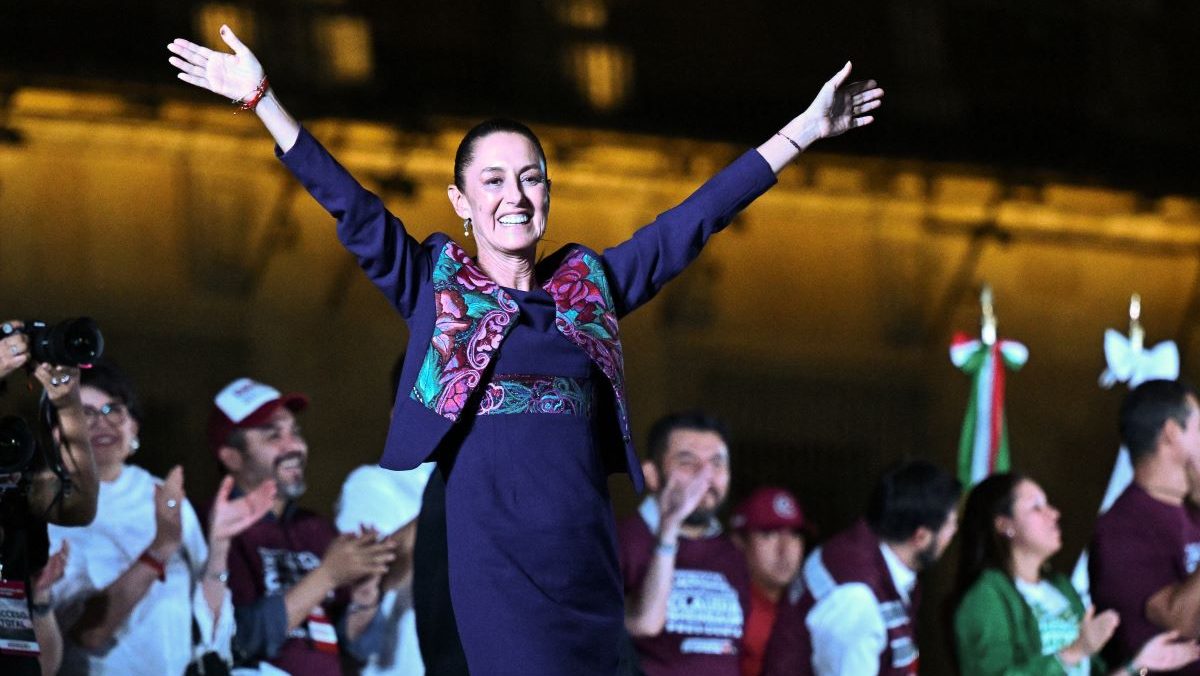Claudia Sheinbaum Becomes Mexico’s First Female President
Claudia Sheinbaum, candidate for the 'Let's Keep Making History' coalition, achieved a historic victory in Mexico's presidential elections held last Sunday. As the first female president of Mexico and the 14th woman to hold such a position in Latin American history, Sheinbaum has made substantial strides in a traditionally male-dominated political landscape. According to the Preliminary Electoral Results Program (PREP), with 95.23% of the votes counted, Sheinbaum secured 33,226,602 votes, totaling 59.35% of the vote. This impressive figure not only confirms her overwhelming support but also sets her as the most voted presidential candidate in the last 30 years.
Sheinbaum’s victory marks a significant departure from Mexico’s electoral past. Until now, no Mexican presidential candidate had won with more than 20 million votes since elections were managed by an autonomous body and not the government. Her closest competitor, opposition candidate Xóchitl Gálvez of the conservative party, garnered 27.90% of the vote with 15,620,726 votes, while Jorge Álvarez Máynez from Movimiento Ciudadano came in third with 10.41% of the vote.
Sheinbaum's electoral success signifies more than a change in leadership; it represents a paradigm shift in Mexican politics. For many, her victory shatters the long-held myth that Mexico wasn't prepared to elect a female president. Political scientist Alejandra López Martínez highlighted that more than 33 million people voting for Sheinbaum signifies strong support for her capabilities and leadership. López Martínez is optimistic that a female president will bring a gender perspective to key issues like violence, feminicide, employment equality, and equal pay. However, she noted that Sheinbaum will likely face heightened scrutiny and higher expectations compared to her male predecessors.
Despite the violence that overshadowed the elections—with shootings at several polling stations and almost 90 politicians killed in the run-up—Sheinbaum’s triumph amid such adversities underscores her tenacity. As she succeeds left-wing populist Andrés Manuel López Obrador, many anticipate she will continue his controversial policies, particularly his 'hugs not bullets' approach to combating organized crime.
Sheinbaum's ascendancy also brings Mexico into a growing list of countries led by women, echoing a global shift towards greater gender equality in leadership roles. As she takes office, the new president will face the dual challenges of continuing her predecessor’s policies and addressing the pervasive issue of violence that cast a shadow over the recent elections.
- Sheinbaum, a 61-year-old physicist and environmental expert, brings a wealth of experience to her new role. Throughout her campaign, she emphasized her close alignment with López Obrador’s policies. Critics have voiced concerns that her administration may not significantly deviate from her predecessor’s approach, particularly in combating organized crime.
- Many speculate that Sheinbaum’s perspective on gender issues will lead to systemic changes in Mexico. Advocates hope for increased efforts to address violence against women, employment equality, and equal pay. The historic nature of her victory and the substantial support she received underscore the public’s readiness for these changes.
- The violence that marred the electoral process is a significant concern that Sheinbaum must address imminently. Multiple incidents, including shootings at polling stations and interruptions caused by ballot theft, underline the urgent need for effective strategies to ensure the safety and integrity of future elections.
- As Mexico transitions from the leadership of López Obrador to Sheinbaum, many will scrutinize the new president’s ability to deliver on her promises while managing the legacy of her predecessor. The international community will also be watching closely to see how Sheinbaum navigates Mexico’s complex political landscape and addresses its pressing issues.






